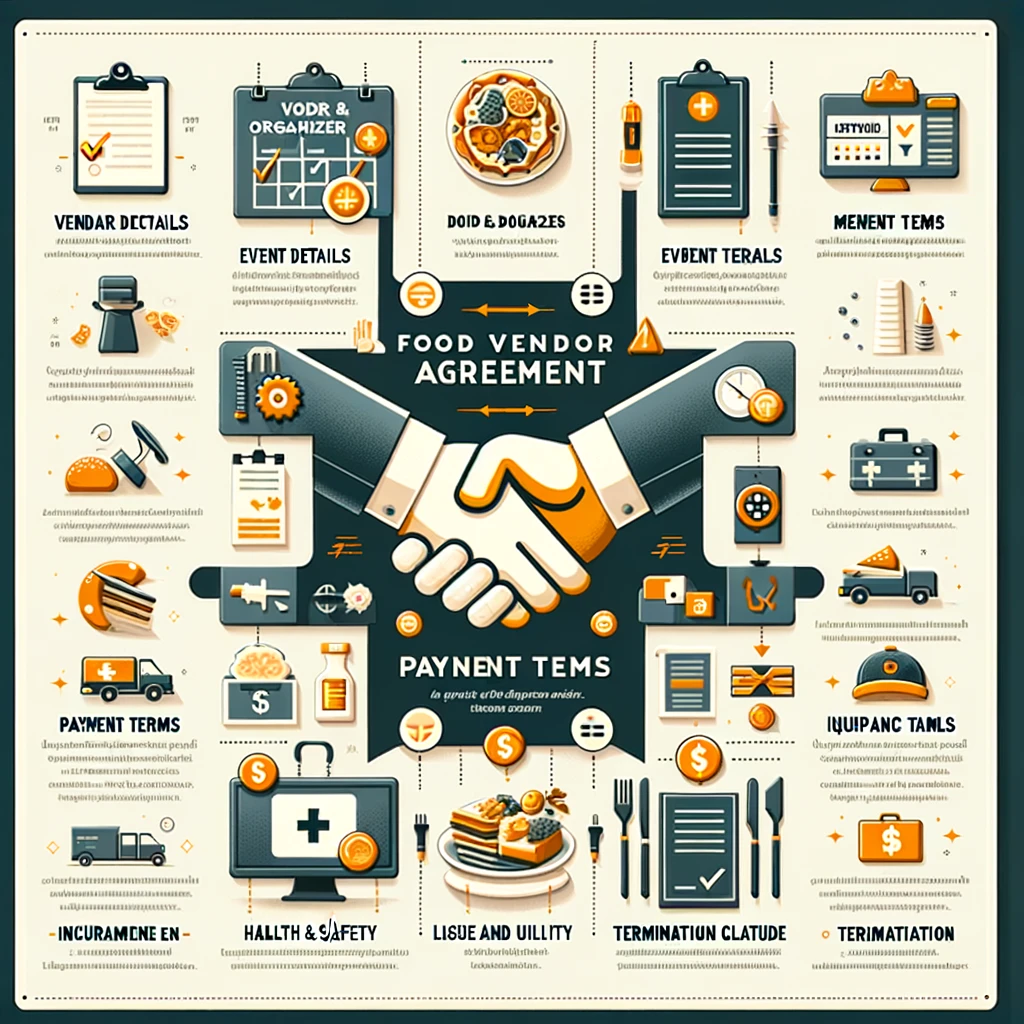
In the bustling world of food vending, a well-crafted food vendor agreement is the backbone of a successful partnership between vendors and event organizers or property owners. This comprehensive guide will explore everything you need to know about food vendor agreement templates, ensuring your culinary ventures are legally safeguarded and operationally smooth. By incorporating authoritative links and expert insights, we aim to make this resource not only SEO-friendly but also incredibly informative and reliable.

A food vendor agreement is a legal contract that outlines the terms and conditions between a food vendor and an event organizer, property owner, or manager. These agreements cover various aspects such as payment terms, operational hours, menu restrictions, and liability insurance requirements.
For a foundational understanding of contracts, the Cornell Legal Information Institute provides a wealth of knowledge on general contract law.
Start with the basics: names and contact information of both parties. This sets the groundwork for a formal and identifiable agreement.
Include specifics like event dates, locations, and operational hours. These details ensure both parties are clear about the event's scope and scale.
This section should detail the fee structure, including any deposits required, payment schedules, and cancellation policies. Transparency here helps avoid future disputes.
To maintain event diversity and avoid menu overlap with other vendors, this clause specifies allowed menu items. Sometimes, organizers may request menu approval to align with event themes.
Adherence to local health and safety standards is crucial. This part should reference relevant regulations, possibly linking to resources like the U.S. Food and Drug Administration's Food Code.
Clarify who provides necessary equipment and utilities (e.g., electricity, water) and the related costs if applicable.
Vendors are typically required to have liability insurance. This section outlines coverage requirements and any indemnification clauses.
Ensure compliance by specifying required licenses and permits for food vending. For assistance, refer to Small Business Administration guidelines.
Detail under what circumstances the agreement can be terminated by either party, including notice periods and any associated penalties.
While templates offer a great starting point, customization is key to addressing the unique aspects of each vending opportunity. Here are some steps and considerations for crafting your agreement:

Create & Review Your Contracts 10x Quality and Ease
Lawyer-level AI handles all your contract needs, with real lawyers providing safeguarding support

Pros:
Cons:
For templates and more detailed guidance, educational resources like the University of Michigan's Contracting Resources can be beneficial.
A food vendor agreement is more than just a formality; it's a crucial tool for defining expectations, duties, and protections for both vendors and organizers. By understanding and carefully drafting your food vendor agreement, you ensure a foundation for success and legal security in your food vending endeavors.
Remember, while templates can provide a useful starting point, customization and legal consultation are key to developing a robust agreement suited to your specific situation.
For further reading on food safety and vending regulations, FoodSafety.gov is an excellent federal resource offering guidelines and regulatory information.
Create & Review All Your Contracts Online With LegalNow AI